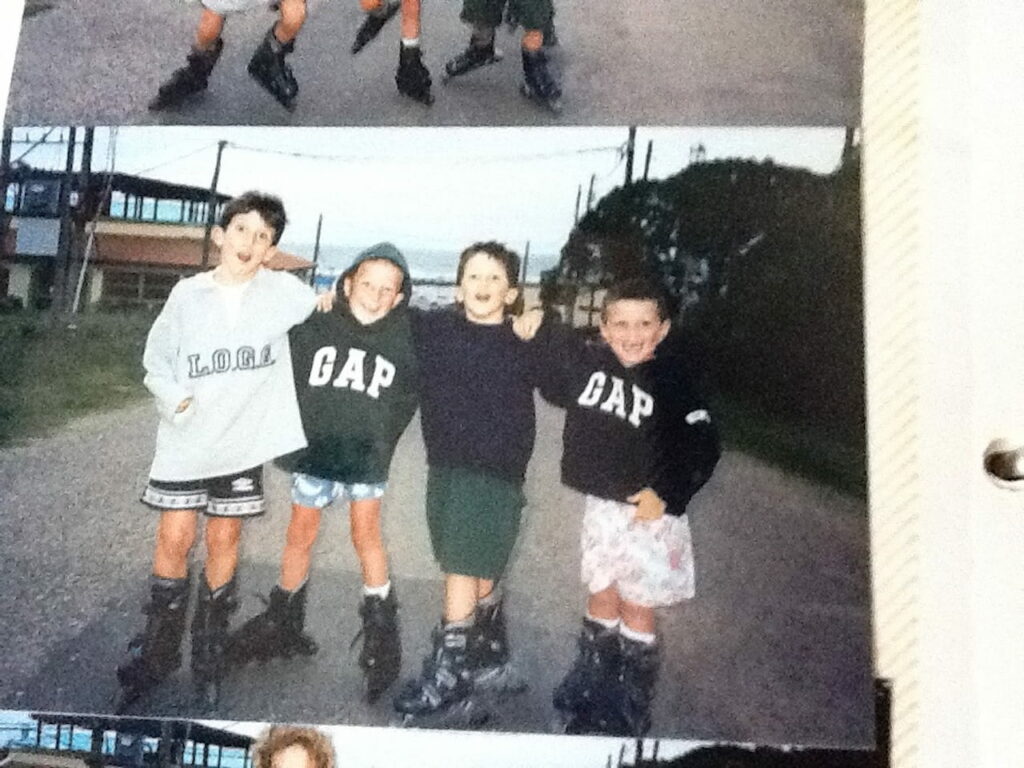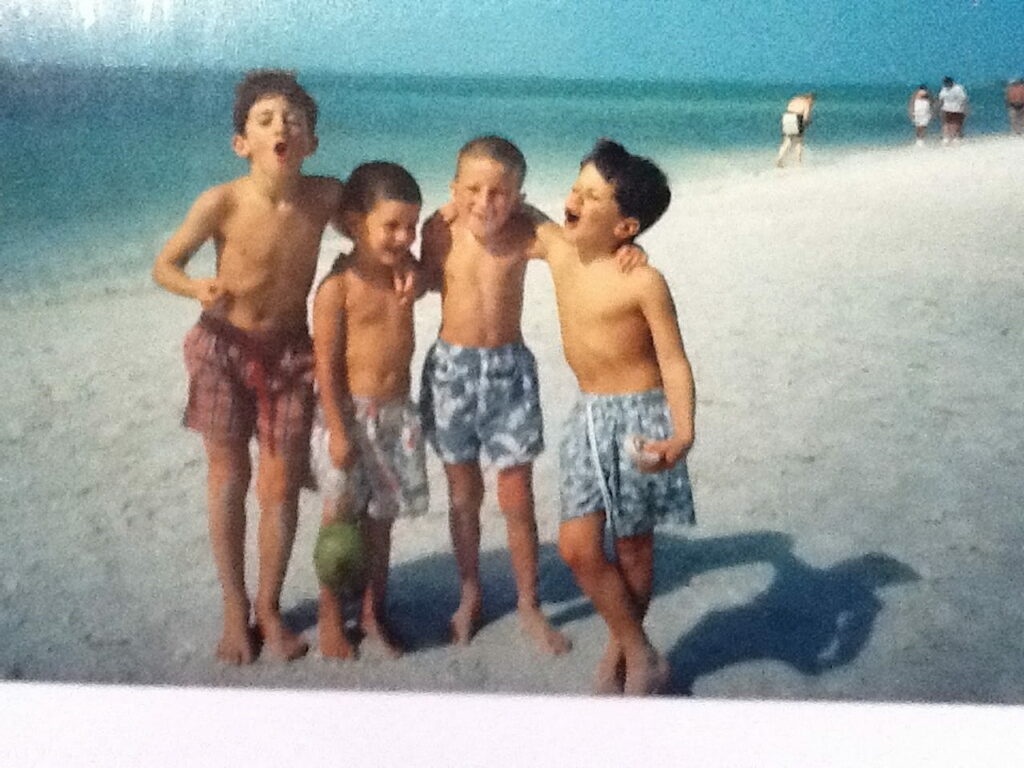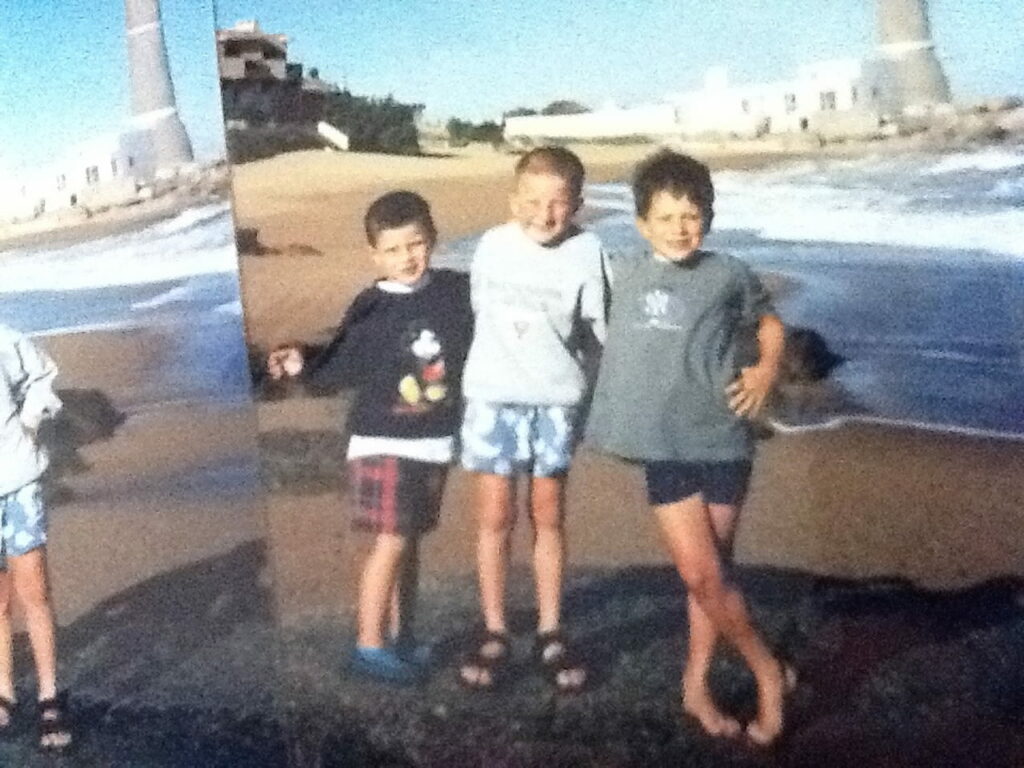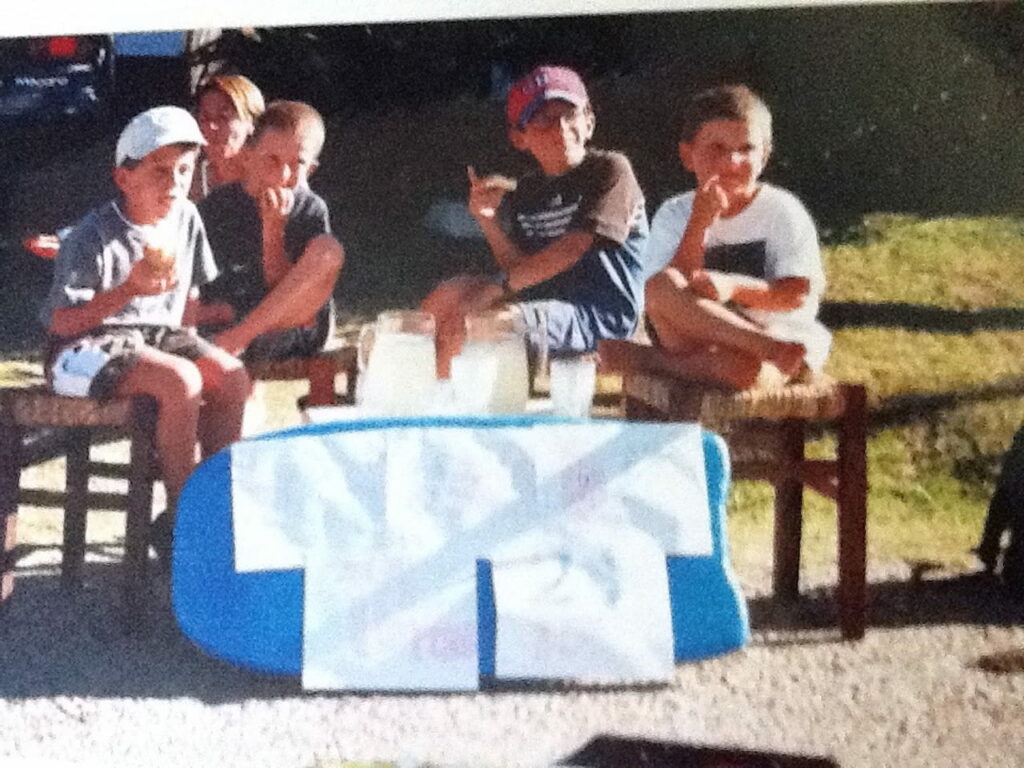Around 1996, two years after the Oslo agreements, which had given so much hope to those of us who believed that a peaceful resolution of the Palestinian-Israeli conflict might be possible, the situation in the Middle East was again turning sour. Yitzhak Rabin had been murdered and the political situation was beginning to go downhill, with mutual suspicions and wild accusations growing on both sides. My souvenirs from Jordan and Kuwait, where I had met so many Palestinians in the early 1980s kept coming back to me. I then had an idea: how about if I made a small contribution to a peaceful solution, by bringing two actors together? Not politicians, but citizens who were respected and were influential within their communities.
I called Samih Sherif, my old boss from P&G, who had retired a few years earlier, and I knew lived in Montreux, about an hour’s drive from Geneva. Over time he had forgotten or decided to ignore his exasperation with me when I resigned from P&G, and I had been in occasional and friendly contact with him.
I explained to him my feelings and asked whether he might be interested in meeting my father. ‘Of course,’ he said, ‘with great pleasure.’
Getting my father to meet Samih was a little more complicated. Initially, he was suspicious and didn’t see the benefit of meeting ‘the enemy’. But I told him that Samih was beyond reproach, that he was an eminent and hugely respected businessman, who was very influential in his community. ‘And,’ I said, ‘Samih is eager to meet you and to hear what you have to say.’
Paul finally agreed and on one of his following visits, we both headed to Montreux for tea at Samih’s home. In the car, Paul was visibly nervous and I could tell that he was wondering whether he had taken the right decision. But when we arrived, he quickly relaxed. Samih received us very warmly and Doris, his wife, had prepared an afternoon buffet with wonderful pastries. We sat in comfortable chairs, overlooking the lake. It was obvious that the Sherif’s had done everything in their power to put my Dad at ease.
After exchanging a few platitudes, Samih asked Paul about his family history, and my Dad told the story of his persecution in Vienna, of his years in Bolivia and of his arrival in Argentina in 1946. Samih listened attentively and at the end said: ‘I’m so sorry to hear how you and your family suffered. Anti-Semitism is one of humanity’s greatest cancers and all of us need to do everything we can to ensure that situations like you and so many other Jews suffered from, will never again repeat themselves.’
Paul was surprised to hear words like these come out of the mouth of ‘the enemy’ and relaxed considerably. He then asked Samih if he could tell him about his own family history.
‘I was born in Haifa in 1924,’ said Samih. My father’s jaw dropped. According to myths circulating within certain groups that my father listened to, there were no Arabs living in towns like Haifa before Israel’s 1948 war of independence. Confused, my father asked: ‘Had your family lived in Haifa for a long time?’ ‘Our records only go back to 1360,’ Samih said, ‘but at that time, my family was already in Haifa.’ ‘And what happened to them?’ Paul asked. ‘Well,’ said Samih, ‘during the first days of the 1948 war, Israeli soldiers burst in and at gunpoint told us to leave.’ Again my father’s jaw dropped. According to the sources he had always listened to, not only were there practically no Arabs living in places like Haifa in 1948, but those who were there, had left voluntarily. ‘Here are photos of my home and here’ (Samih opened a beautiful wooden box), ‘here is the key of our home.’
My father, now totally flabbergasted, asked whether Samih had ever been back to Haifa. ‘Oh no,’ Samih said, ‘I have been told in no uncertain terms by the Israeli authorities, that I would not be welcome in Israel.’ ‘So what happened to your home?’ Paul wanted to know. ‘An Israeli family is living there now,’ Samih responded in a matter-of-fact way.
My father was now visibly touched. To change the subject, he turned to Doris and asked: ‘Tell me about you and about your family. Where are they from?’ Doris very kindly said: ‘They are from the western part of Jerusalem. Our records don’t go back as far as those of Samih, but we know for sure that they lived there around 1850.’ Again, my father’s jaw dropped. According to what he had heard, there were so to speak no Arabs living in the West-Jerusalem. ‘And what did your father do?’ Paul wanted to know. ‘He was a cook,’ Doris said. ‘But, sadly,’ she added, ‘he died very young, in 1946.’ ‘Oh’, said my father, ‘I’m sorry to hear this. What did he die from?’ ‘From a terrorist attack on the King David Hotel,’ said Doris. ‘My father worked in the kitchen there.’
Now Paul was totally silent. He had always insisted that the terrorists were ‘the others’; that Israelis were beyond reproach. Yet here he was sitting in front of the daughter of a man killed by Irgun, the terrorist group of which Menachem Begin, the Israeli Prime Minister, had in his youth been a member of.
At this point, Samih thought it would be wise to change the subject and the rest of the time with the Sherifs was spent on platitudes.
When the time came to leave, Samih accompanied us to the door and on the way out, he reached out to my father, hugged him and said: ‘You know, we are cousins, we have suffered on both sides. If you feel like it, I would love to stay in touch with you.’
On the way back, Paul was mostly silent, but before arriving in Geneva, he said: ‘Samih’s and Doris’s stories really touched me. These are good people.’ I thought that this was ‘now or never’ moment, and said: ‘Dad, why don’t you use your connection to Samih to establish a bridge between Israelis and Palestinians? He is influential, so are you. You both respect each other. Perhaps together, you could achieve something that politicians have been unable to do!’
Over the next year, Samih and Paul were often in contact via email. Initially, their correspondence was very friendly and considerate. But over time, my father started to forward to Samih the incendiary material he was receiving from some of his friends. Initially, Samih tried to respond, but at some point, he fell silent. One day, it was about 18 months after our visit, he called me. ‘I’m sorry,’ he said, ‘I know I’ll disappoint you, but I can’t continue this exchange. What I receive from Paul is not only inaccurate, it’s also deeply disturbing. It portrays Palestinians as terrorists and unethical people, it’s hate material that hurts me immensely. I have tried to be constructive, but it just doesn’t work.’
Samih wrote a very kind, but firm message to my father, saying that it might be best to pause their exchange for a while. Paul acknowledged the email, and said to me: ‘You see, there is no way we can have a constructive dialogue with the other side, they don’t want to hear the truth.’
That was the end of my experiment to contribute to a solution to the Israeli-Palestinian conflict by getting together people who had personally suffered. I continue to think that it’s a path that shouldn’t be ignored—we cannot only leave the politicians to find the solution, otherwise it just won’t happen. In the case of Samih and Paul, maybe the problem was that they saw each other only once. I think that if they had seen each other more regularly, then perhaps they could have bridged the abyss that they fell into. I also think that it was very unwise for Paul to have sent such incendiary material to Samih; he could have thought twice before forwarding articles and comments which even shocked me when I read them. The material Paul forwarded was not conducive to a constructive dialogue and I can sympathise with Samih’s reaction.
Paul and Samih had no more contact after 1998, but when Samih passed away in 2019, Paul wrote to his son a very kind note. In it he said that his father had been ‘a courageous and fair-minded person’, who he had had the privilege to meet.
For the arrival of the new millennium, the four of us travelled to South America. Edi rented a house in José Ignacio, Uruguay, which was big enough to house both our families plus Sonia and Lisl. The kids all got along very well. Especially Pablito and Axel were inseparable. As usual, Edi and Pato were very inventive and organised all kinds of activities for the children. Almost every evening, Edi and I would organise large barbecues, often with the fish that we had caught with Maestro Cabrera, the local fisherman. I loved these get-togethers, which brought back memories of my youth on the beaches of Punta del Este.
The house we had rented was beside a little road and one day, Pato gave the kids the idea of selling lemonade on the street. In no time, Pablito and Axel prepared two large pitchers of water mixed with freshly pressed lemons, ice and a bit of sugar. They set up a table in front of the house, with a little sign marked ‘$ 10’ and started to sing at the top of their lungs ‘Limonada, diez pesos’ to the passers-by, of which there weren’t many. After about an hour, nobody had stopped at the little stand and the kids were visibly disappointed. So, we all got together on the street, and started to forcibly stop anyone venturing by, inviting them to take a closer look at the lemonade. Under duress, a few people did buy a glass and after a further hour, Pablito and Axel were the proud owners of $ 70.
Now came the big question of how to spend the money. There weren’t many shops in José Ignacio at the time, and anyway $ 70, what appeared to the kids as a colossal sum, was in reality not much. So, we advised the kids to spend the money in the local supermarket. On the way there, Pablito and Axel loudly discussed whether they would buy a present to every member of the family or a big one for Pato, since she had the original idea. ‘Or it might be best to buy cheese and sausages and prepare an asado,’ one of the two said. ‘Or maybe we’ll buy a few bottles of wine, as a thank you to Edi for having rented the house,’ the other one said. Edi and I waited outside while the boys were in the supermarket. Amidst laugher they came out half an hour later with…twelve large bottles of Fanta, a drink that only they enjoyed, and which they finished over the next two or three days, amidst high fives and repeated assurances that ‘we’ll do this again’!
The River
Pedro Simko

The River
Pedro Simko




